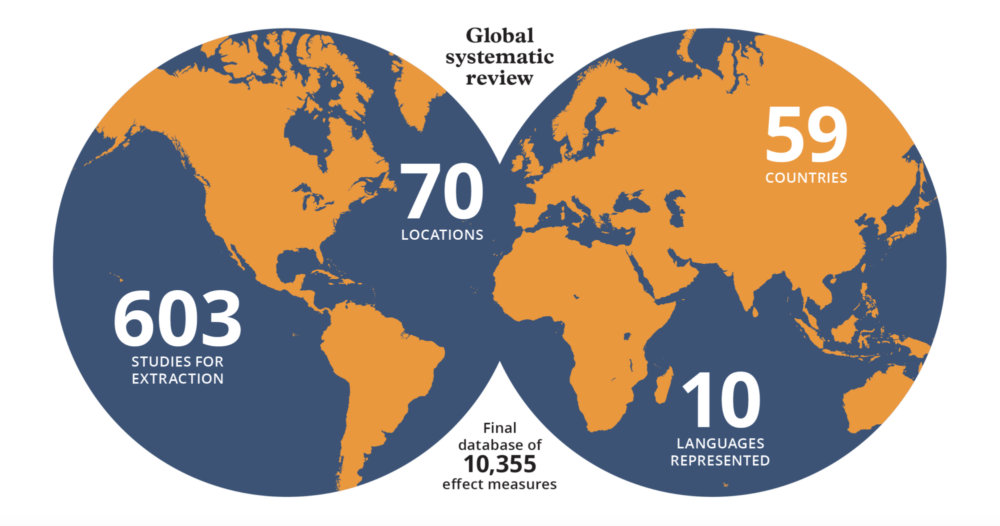Learning for Life: The higher the level of education, the lower the risk of dying
Education saves lives regardless of age, sex, location, and social and demographic backgrounds.
Researchers have known that those who reach higher levels of schooling live longer than others, but they didn’t know to what extent until now.
More education leads to better employment and higher income, better access to healthcare, and helps us take care of our own health.
In the latest and largest study of its kind published today in The Lancet Public Health, researchers found that the risk of death drops by nearly two per cent with every additional year of education.
That means those who completed six years of primary school had a lower risk of death by an average of 13 per cent. After graduating from secondary school, the risk of dying was cut by nearly 25 per cent, and 18 years of education lowered the risk by 34 per cent.

The effect of 18 years of education is equivalent to the risk of heavy drinking versus occasional drinking. But every year extra education has an effect, shows the survey in the Lancet. Photo: Shutterstock, NTB
“More education leads to better employment and higher income, better access to healthcare, and helps us take care of our own health. Highly educated people also tend to develop a larger set of social and psychological resources that contribute to their health and the length of their lives,” said Mirza Balaj, co-lead author and postdoctoral fellow at NTNU’s Department of Sociology and Political Science.
- You might also like: Children of well-educated people have higher survival rates
Compared to other risk factors
Researchers also compared the effects of education to other risk factors such as eating a healthy diet, smoking, and drinking too much alcohol, and they found the health outcome to be similar.

Not going to school at all is as bad for your health as drinking five or more alcoholic drinks per day, or smoking 10 cigarettes a day for 10 years. Photo: Shutterstock, NTB
For example, the benefit of 18 years of education can be compared to that of eating the ideal amount of vegetables, as opposed to not eating vegetables at all. Not going to school at all is as bad for you as drinking five or more alcoholic drinks per day or smoking ten cigarettes a day for 10 years.
- Completing primary school reduces the risk of dying by 13 per cent compared to no schooling.
- Graduating from secondary school lowers the risk of death by 25 per cent compared to those who do not go to school.
- 18 years of education reduces the risk of death by 34 per cent and is comparable to eating a healthy diet.
- Not going to school is as bad for your health as drinking five or more alcoholic drinks per day or smoking 10 cigarettes per day for 10 years.
“Education is important in its own right, not just for its benefits on health, but now being able to quantify the magnitude of this benefit is a significant development,” said Dr. Terje Andreas Eikemo, co-author and head of Centre for Global Health Inequalities Research (CHAIN) at (NTNU).
While the benefits of education are greatest for young people, those older than 50 and even 70 years still benefit from the protective effects of education.
- You might also like: Unemployed have poor health than they report
Same benefit for all countries
Researchers found no significant difference in the effects of education between countries that have reached different stages of development. This means that more years of education is just as effective in rich countries as in poor countries.
“We need to increase social investments to enable access to better and more education around the globe to stop the persistent inequalities that are costing lives,” Balaj said.
“Closing the education gap means closing the mortality gap, and we need to interrupt the cycle of poverty and preventable deaths with the help of international commitment,” said Claire Henson, co-lead author and researcher at Institute for Health Metrics and Evaluation (IHME) at the University of Washington’s School of Medicine. “In order to reduce inequalities in mortality, it’s important to invest in areas that promote people’s opportunities to get an education. This can have a positive effect on population health in all countries.”
“Our focus now should be on regions of the world where we know access to schooling is low, and where there is also limited research on education as a determinant of health,” said Emmanuela Gakidou, co-author and professor at IHME.
Most comprehensive study to date
No other study has been able to identify the importance that each year of education has for the risk of death on a global level, Eikemo said.
The study identified data from 59 countries and included over 10,000 data points collected from over 600 published articles. Most of the studies reviewed for this study were from high-income settings, highlighting the need for more research in low- and middle-income countries, particularly from sub-Saharan and north Africa where data are scarce.

The extent of the data collection was comprehensive and spanned the globe. Graphic: eurohealthnet.eu
The investigation required the work of 30 people over three years. The benefit of all that effort is that the results are solid.
“We believe this is a scientific world record. It’s probably the most comprehensive meta-study ever published. Mirza has led an enormous piece of work in size and quality that can have significant political repercussions,” Eikemo said.
Reference: Effects of education on adult mortality: a global systematic review and meta-analysis. The Lancet 2024. https://doi.org/10.1016/ S2468-2667(23)00306-7






